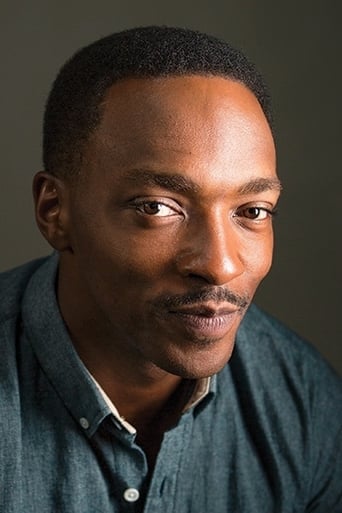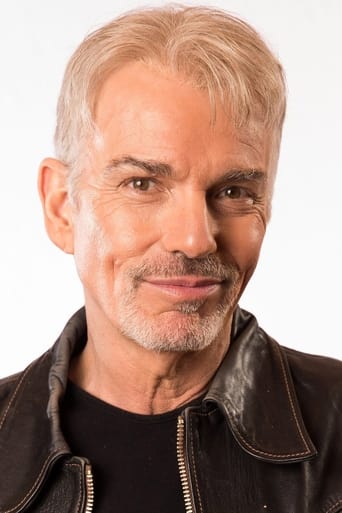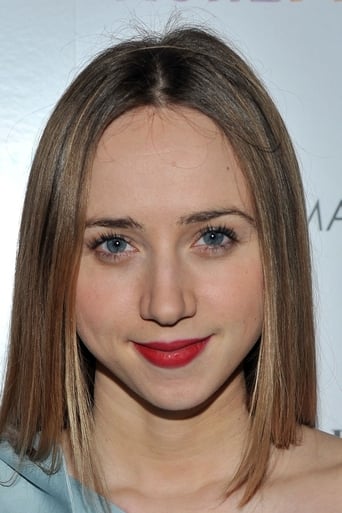Phonearl
Good start, but then it gets ruined
Brendon Jones
It’s fine. It's literally the definition of a fine movie. You’ve seen it before, you know every beat and outcome before the characters even do. Only question is how much escapism you’re looking for.
Frances Chung
Through painfully honest and emotional moments, the movie becomes irresistibly relatable
Mathilde the Guild
Although I seem to have had higher expectations than I thought, the movie is super entertaining.
gtyoshida72
Jane Bodine (Sandra Bullock)is a hardened, political consultant recruited by an American political campaign team to overcome a huge lead in the Bolivian election and get their candidate, Senator Pedro Castillo (Joaquim de Almeida) elected as the new President. Although slow to take charge and rally the troops, "Calamity" Jane eventually becomes the energized, back alley brawler she is known to be and throws herself completely into the challenge and at the same time settles an old score with her nemesis (Billy Bob Thornton). While critics maintain that Bullock's performance was lackluster, I saw her character, Jane Bodine,as fresh, original, and nuanced. Billy Bob Thornton reaffirmed his versatility as an actor and the remarkable footage of Bolivia established the invasive nature of the American puppet masers. I rate this movie 8 out of 10.
Koustubh Bhattacharya
There is no 'bad' Sandra Bullock movie. But that's my opinion. Our Brand is Crisis reaffirms my belief. It is well paced with sufficiently despicable characters for the story and a cathartic ending. Its a dirty enough political drama and its as dry as the whole business gets. It gets my thumbs up for showing the drab side of political PR that is in reality. Yes, it is absolutely mindnumbingly uninteresting and hollow. Sorry, there's nothing entertaining about political consultants who sold their soul to the devil years ago and are now living for the paychecks that come from installing bad leaders to power, fully aware of the moral deprivation of their job.It surely would take a certain audience to enjoy this movie. I am thinking of media representatives and political image managers. They must appreciate the depths to which Bullock's character sinks to finally stick it to the adversary, the rival consultant played by Billy Bob. He's so masterful at playing obnoxious roles. Although, I think he got a little shadowed by nastiness of our fierce, Sun Tzu quoting protagonist. Things got way more personal than they normally should but there's nothing normal about American consultants trying to guide leaders in countries where they don't understand the native language and have no clue of the local culture. In fact, the original documentary that this film is based on, goes as far as to claim that this mismatch of perspectives ultimately hurts the future governments in those countries as people basically lose trust in their leaders. If you love Veep then you'll like this as well. It has those moments of indiscretion that makes the Julia Louis-Dreyfus series so funny. With political campaigning becoming more and more about advertising and less about policy, leaders have become extremely frivolous about their promises. They just want to win the election. This attitude is fueled by more aggressive PR managers who plan for every little act to contribute towards maximum exposure. Whether you fit the narrative to the man or fit the man in the narrative, you know that democracy is about winning the majority vote. Thus the usual trickery of one-upmanship has to ensue, even at the risk of driving the campaign bus down the abyss.
Turfseer
Our Brand is Crisis is based on the 2005 documentary of the same name, which followed the participation of James Carville's consulting firm in the 2002 Bolivian campaign for president. Here, Sandra Bullock plays Jane Bodine, a fictionalized version of Carville, called out of semi-retirement, following a declining career as a campaign manager. Like Carville, she accepts the challenge to manage the presidential campaign of Pedro Castillo, a former president who leans to the right on the political spectrum. Bodine's nemesis, Pat Candy (portrayed as deeply cynical in Billy Bob Thornton's performance) represents the populist candidate, Rivera, who is way ahead at the beginning of the campaign in a three-way race.Sandra Bullock is a little better here in some of her previous comic roles (e.g. The Proposal, The Heat), as the initially burnt out Bodine, only engaging in her usual pratfalls (this time it's throwing up all over the place after arriving in Bolivia), at the beginning of the film, and later settling down as a determined strategist, who eventually outfoxes her aforementioned nemesis, Pat Candy.How far will Bodine go in manipulating the public's view of Castillo? This is essentially what keeps our interest as the narrative progresses to the climax—the results of the campaign for president. First Bodine notes that Castillo, with his flat demeanor, is unable to make a personal connection to the electorate. Eventually she softens him up so that he appears to be more emotionally accessible. The team concludes that Castillo must sell the idea to the Bolivian people that the country is in a "crisis," and Castillo is just the man to fix the dire problems facing the country.Bodine urges Castillo to adopt smear tactics against his opponent but the high-minded candidate refuses. It's only after Rivera smears Castillo regarding a long-ago extra-marital affair that Castillo relents and allows Bodine to adopt similar tactics. One of those strategies involves publicizing a photo of Rivera, with a Nazi war criminal, standing in the background.Perhaps the most dramatic moment in the film occurs when rocks are thrown at Castillo's campaign bus, forcing it to stop in a small town, where angry indigenous people are protesting the possibility that the International Monetary Fund (IMF) may be allowed into the country. Castillo gets out of the bus and confronts the protesters—promising that the IMF will not be accepted without a referendum. There is also a sub-plot involving Eduardo, a campaign volunteer, who feels connected to Castillo, since a photo was taken of him and the former president on the earlier campaign trail, when he was a child. Eduardo's family members don't share his enthusiasm for Castillo and castigate him for his allegiance to the right-wing candidate.As the film's antagonist, Pat Candy has little screen time, and his confrontations with Bodine mainly amount to a series of conversations that are well-written but don't raise any stakes. The most dramatic of these interactions between the two campaign managers occurs when Bodine tricks Candy into having his candidate reference a quotation attributed to Goebbels, Hitler's vile propaganda minister.When Castillo finally wins the election by the slimmest of margins, he goes back on his promise to hold a referendum on the IMF, alienating even Eduardo, one of his most ardent supporters. And Bodine, after informing Eduardo that she wasn't responsible for Castillo's deception regarding his campaign promise, later joins him in an unlikely show of solidarity with the people she worked against during the campaign.Our Brand is Crisis is thoroughly watchable despite a dearth of big dramatic moments and a significant antagonist that propels the action forward. It has been said that the film lost money because it was inaccurately billed as a comedy. Maybe so, but this dramedy is worth at least one look.
MLDinTN
it is a drama/ but at the same time tries to be a comedy. Sandra Bullock plays a rather depressing soul. She's "retired" from the political game but gets dragged back in to help a candidate, Castillo, win the Bolivian presidency. She's moody and has a potato chip habit and can't get over the altitude sickness. But when she sees the front runner has her advisory, Billy Bob, working for him, she puts her game face on. She wants a negative campaign and even puts out that Castillo had an affair to blame it on Billy Bob so Castillo will agree to the smear campaign.Her tactics work and Castillo wins. But the ending is very weird. Because he breaks some campaign promises, causing the public to riot. Sandra sees even though she won, perhaps it wasn't the best thing. At the end, it says she's some kind of director for a Latin American organization.FINAL VERDICT: Not to great. Not one of Bullock's best roles. I say, avoid it.















